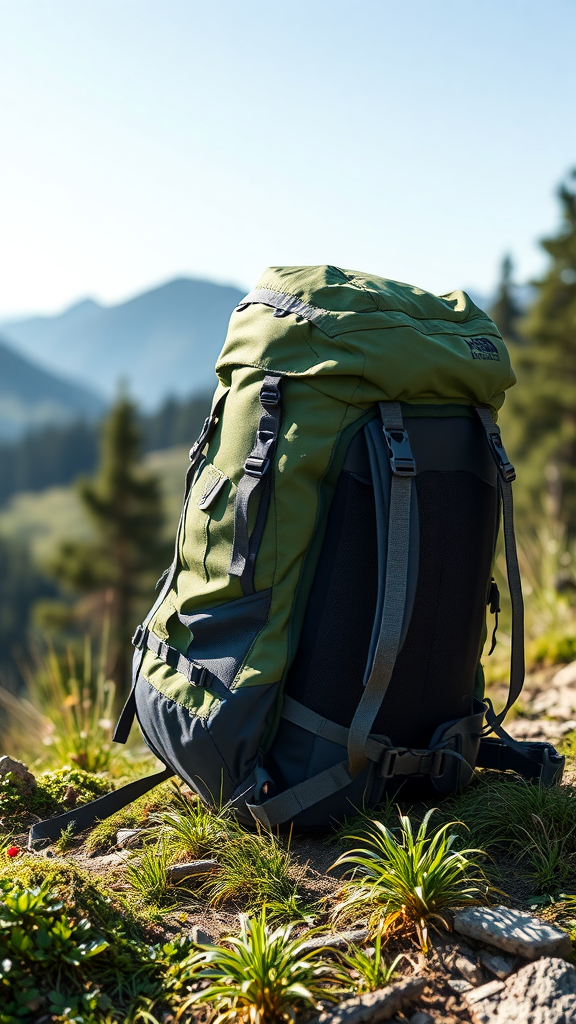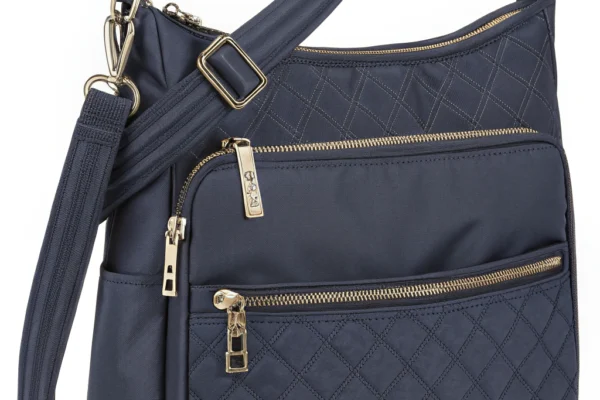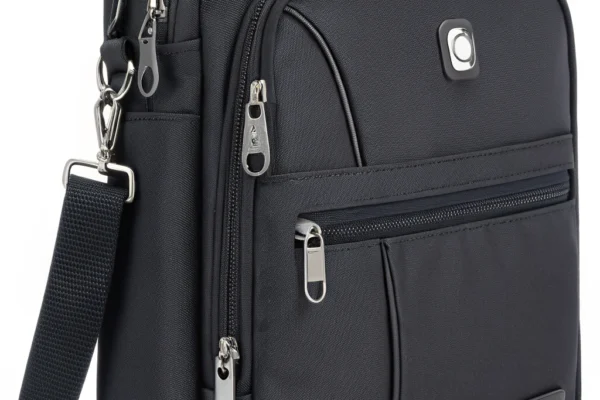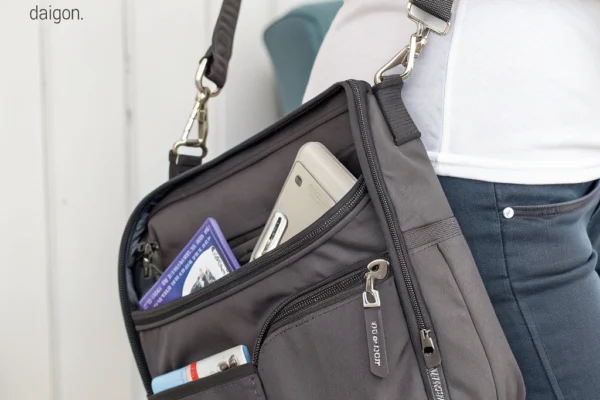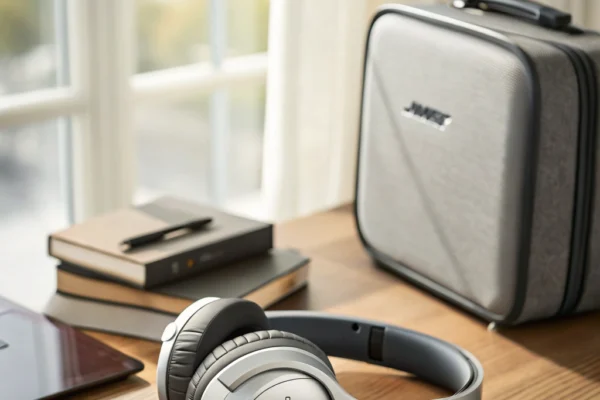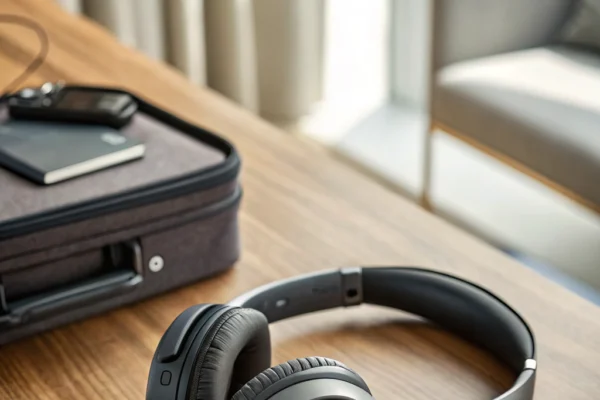Don't Miss Exclusive Deals!
Get instant alerts when prices drop on products you love. Join thousands of smart shoppers!
🔒 Your privacy is protected. Unsubscribe anytime. No spam, ever.Choosing the Right Hiking Backpack for Your Adventure
Choosing a hiking backpack is essential for a successful outdoor adventure. Whether you are planning a short day hike or a multi-day trek, the right backpack can make a significant difference in your comfort and performance. Here’s what you need to consider.
Thank you for reading this post, don't forget to subscribe!Understanding Your Needs
Before you start shopping, think about the types of hikes you plan to take. Ask yourself the following questions:
- How long will your hikes typically last?
- What gear do you need to carry?
- Will you be hiking in different weather conditions?
- Do you plan to carry extra water or food?
Your answers will guide you toward the right size and type of backpack.
Shop Related Travel Products
Hand-picked ideas to match this post. Browse and compare:
🔥 Shop Now →As an Amazon Associate, we earn from qualifying purchases.
Size Matters
Backpacks come in various sizes, which are usually measured in liters. Here’s a rough guideline:
- Day hike (10-20 liters): Great for short trips where you only need the essentials.
- Weekend trips (20-50 liters): Perfect for overnight hikes where you’ll carry extra clothing, food, and gear.
- Multi-day treks (50+ liters): Ideal for extended trips where you require a larger load for tents, kitchen gear, and personal items.
Fit and Comfort
A well-fitting backpack can make a huge difference in your hiking experience. Look for these features to ensure maximum comfort:
Shop Related Travel Products
Hand-picked ideas to match this post. Browse and compare:
🔥 Shop Now →As an Amazon Associate, we earn from qualifying purchases.
- Adjustable Straps: The shoulder straps, hip belt, and sternum strap should be adjustable to fit your body.
- Padding: Good padding on the shoulder straps and back panel ensures comfort during long hikes.
- Weight Distribution: The backpack should distribute weight evenly to reduce strain on your back and shoulders.
Material and Durability
Consider the materials used in the backpack construction. You want a backpack that is both lightweight and durable. Look for features such as:
- Water-Resistant Material: A water-resistant backpack can protect your gear from unexpected rain.
- Rip-Stop Fabric: This type of fabric is less likely to tear if snagged on branches or rocks.
Access and Storage Options
How you access your gear can make a big difference on the trail. Consider these options:
- Top-Loading vs. Panel-Loading: Top-loading backpacks are great for easy packing, while panel-loading options provide easier access to your gear.
- Pockets and Compartments: Look for pockets that allow for organization and quick access to frequently used items.
Additional Features to Consider
Other features can elevate your hiking experience.
- Hydration Reservoir: A built-in water reservoir can help you stay hydrated without stopping frequently.
- Attachment Points: D-rings, loops, or clips can help you securely attach gear like trekking poles, sleeping bags, or extra clothing.
Finding the Right Style
Your personal style also matters when choosing a backpack. Whether you prefer a minimalist look or something more colorful, many options are available. Test different designs to see what feels right for you. Some people prefer backpacks with a more traditional silhouette, while others may enjoy modern designs with various color options.
Try Before You Buy
Always try on different backpacks in-store if possible. Load them with weight similar to what you would typically carry. Walk around a bit to see how they feel. Check these aspects:
- Does the weight feel balanced?
- Are the straps digging into your shoulders?
- Does the hip belt sit comfortably on your hips?
Choosing the right hiking backpack involves careful consideration of various factors such as size, fit, material, and features. Take your time in evaluating your options, and you’ll find a backpack that enhances your hiking experience. Exploring the great outdoors can be even more enjoyable when you have the perfect gear to support you on your adventures!
Essential Features to Look for in Hiking Backpacks
When it comes to choosing the right hiking backpack, you want to ensure it meets your specific needs. With numerous options available, it can feel overwhelming. However, focusing on essential features can simplify your decision-making process and help you find the perfect backpack for your adventures.
First and foremost, size matters. Hiking backpacks come in various sizes, typically measured in liters. Consider how long your hikes will be and what gear you need to carry. If you’re going on a day hike, a smaller pack, around 20-30 liters, should suffice. However, for multi-day trips, look for packs ranging from 50 to 80 liters. Always ensure you have just enough space for your essentials without overloading your backpack.
Next, pay attention to the fit. A well-fitting backpack can significantly enhance comfort, especially during long hikes. Look for adjustable straps that allow you to customize the fit to your body size. You should be able to adjust the shoulder straps, hip belt, and sternum strap for a snug but comfortable hold. Additionally, consider the frame of the backpack; some packs feature a rigid frame for stability, while others have a soft design for flexibility. Choose what feels best for your hiking style.
A hydration system is another critical feature to look for. Staying hydrated while hiking is crucial, so consider a pack that has a built-in hydration reservoir or sleeves for water bottles. Many modern backpacks come with hydration reservoirs that can hold several liters of water, allowing you to drink hands-free through a tube. This feature enables you to sip water on the go without fumbling through your bag.
Weight distribution is essential for comfort and efficiency. Look for backpacks that offer multiple pockets and adjustable straps to help balance the weight across your back. A good backpack will distribute weight evenly, reducing strain on your shoulders and back. Additionally, sit down and try the backpack on with some weight in it. Take a moment to ensure the pack sits comfortably against your back. The last thing you want is to be uncomfortable during your hike.
Durability is key when it comes to hiking backpacks. Look for materials that can withstand the elements. Fabrics like nylon and ripstop are popular choices due to their lightweight and resistant properties. Consider a backpack with reinforced stitching and strong zippers as these features contribute to the overall durability. Investing in a quality backpack will ensure it lasts through many adventures.
Weather resistance can also make a significant difference in your hiking experience. Depending on your hiking locations and conditions, consider a backpack that’s water-resistant or comes with a rain cover. This feature will protect your gear from unexpected rain showers or splashes if you’re crossing streams. It’s always better to be safe than sorry when it comes to keeping your belongings dry.
Storage options should not be overlooked. Look for backpacks that offer various compartments for organizing your gear, including a sleeping bag compartment, side pockets for water bottles, and front pocket for quick access items. Additionally, some backpacks come equipped with gear loops or daisy chains for attaching extra items like hiking poles or carabiners.
Weight is a common concern for hikers. Seek lighter models if you’re planning extended hikes, as carrying less can help prevent fatigue. However, lightweight models often compromise some features, so it’s important to find a balance that suits your hiking needs.
- Size: Choose based on hike duration.
- Fit: Adjustable straps for comfort.
- Hydration System: Built-in or bottle sleeves.
- Weight Distribution: Balanced and comfortable.
- Durability: Look for strong materials.
- Weather Resistance: Consider water-labeled features.
- Storage Options: Multiple compartments and loops.
- Weight: Lighter packs for long-distance hikes.
Consider the style and color that resonates with you. While it might seem trivial, having a backpack that you love and feel good wearing can enhance your overall hiking experience. One that reflects your personality makes every hike a bit more enjoyable.
Modeling your selection of a hiking backpack around these essential features will greatly increase your chances of finding the perfect gear. Remember, the right backpack can make your adventures more enjoyable, comfortable, and safe.
Conclusion
Selecting the perfect hiking backpack is key to ensuring a successful and enjoyable outdoor experience. As you prepare for your next adventure, remember that the right pack should cater to your specific needs. Whether you’re planning a day hike or an extended trek, consider factors like size, weight, and fit. A backpack that suits your body type and carries your gear comfortably can make all the difference, allowing you to focus on the beauty of nature rather than discomfort.
When evaluating hiking backpacks, essential features should be at the forefront of your decision-making process. Look for adjustable straps that provide a secure fit, as well as a hip belt that evenly distributes weight, which can ease the strain on your shoulders. Additionally, compartments and pockets for organization can keep your essentials accessible while on the move. Waterproof materials are also a vital consideration to protect your gear from unexpected weather conditions.
In the end, investing time and thought into choosing your hiking backpack will pay off on the trail. A well-fitted and feature-rich backpack not only enhances your comfort but also increases your overall enjoyment of the hike. So, take the time to assess your options, prioritize your needs, and choose a backpack that feels right for you. With the right gear, you’re more likely to have a memorable adventure filled with exploration and joy. Happy hiking!
Shop Related Travel Products
Hand-picked ideas to match this post. Browse and compare:
🔥 Shop Now →As an Amazon Associate, we earn from qualifying purchases.

